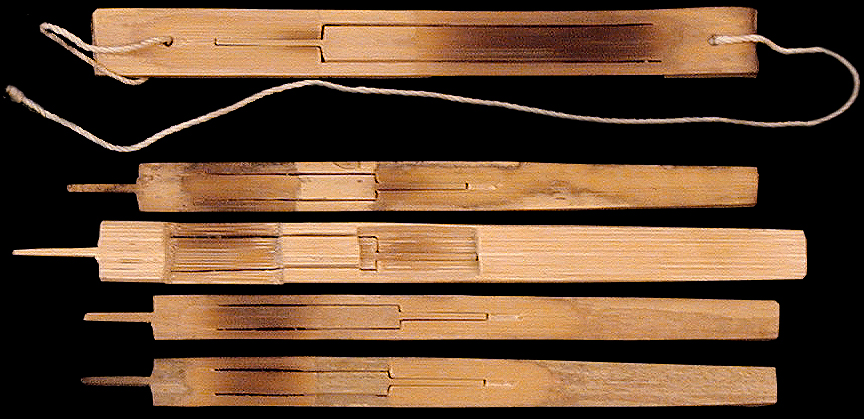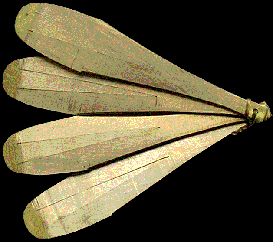 |
 |
| <Kouqin, Kouxian Kouqin is the generic name in Mandarin Chinese for jaw harps, translating literally into English as 'mouth instrument'. Sometimes the instrument is also known as a kouxian or 'mouth string'. China has 55 minority groups, with many sub groups, with a large number of these each having their own unique form of kouqin, although many have disappeared in recent years, sometimes replaced with western models. There are a large number of single tongue kouqin as well as a number or multiple tongued kouqin in China, with the latter primarily found in the south west provinces of the country. The bamboo instruments below were collected in Yunnan Province in southern China and are believed to be either the gugu of the Naxi people or the Yi hehe. They instruments come in a set that combines both tension and plucked jaw harps, and are tuned to five tones of a pentatonic scale. They are quite small instruments, with the shortest being the length of a little finger, yet they have a surprisingly present sound. This set of instruments is played by a small group of people. The brass instruments below are found in both China and Vietnam and come in three or four tongued versions. They are played by a number of Minority peoples and known by a number of names such as the Lahu ata, Yi hehe, Hani aye and the Jinuo qikui. Country: China |
||
 |
 |
|
| Naxi gugu or Yi hehe | Yi hehe or Lahu ata |
|
| © R. Raine-Reusch, May 2002 | ||